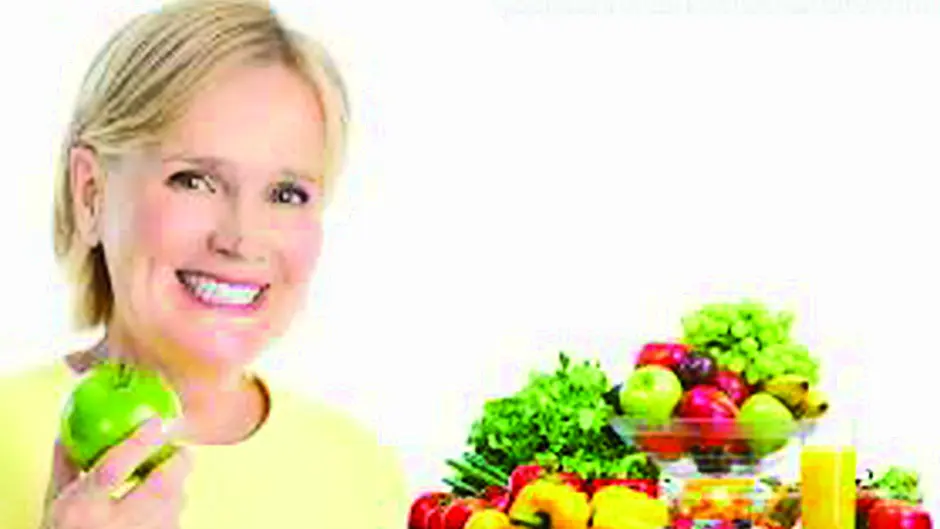How we experience the menopause will depend partly on genetics, significantly on how we view it psychologically, and very much on our diet and lifestyle.
‘I see menopause as the start of the next fabulous phase of life as a woman. Now is a time to tune in to our bodies and embrace this new chapter.’ – Kim Cattrall
‘It’s not a disease, it’s a natural transition.’ – Paula Mee
Last November a major review of the evidence surrounding the use of HRT found that the associated increased risk of breast cancer—particularly in regard to oestrogen only HRT—had been overstated. Having looked into it, I can’t say that I will be going down this route; whatever about risks, which will vary according to the individual, the hormones used are after all synthetic ones and as such alien to the body, and while there’s a growing interest in the use of bio-identical hormone replacement it’s hard to source or fund. Having said that, HRT is very much a personal choice, and for those who are suffering it may well be a good one.
Three things struck me as I went about my research. Firstly, even as I approach this sea change myself I’d no idea that menopause was still considered a taboo subject in some quarters. I simply have no idea why, but the clear consensus is that we need to be talking. Secondly, the few personal accounts I found were nearly all negative in tone--hence the uplifting quotations from inspirational women above. And thirdly, there is so much that we’re not told about the subject, and about the perimenopause in particular. In a sense, menopause means the end of any unwelcome symptoms. It’s the phase leading up to it, when hormone levels are fluctuating wildly and which is often in full swing by your mid-forties, that presents issues that are about much more than hot flushes and night sweats. As I can attest, they can include anything from indigestion, dizziness, thinning hair, bladder problems and severe skin itching to memory problems, insomnia, acute anxiety, and joint pain that is so marked that some women have been wrongly diagnosed with rheumatoid arthritis.
How we experience the menopause will depend partly on genetics, significantly on how we view it psychologically, and very much on our diet and lifestyle.
At this time we really need to focus on adopting a diet of whole, unprocessed foods with plenty of healthy proteins and healthy fats, both of which are vital for hormone production and a strong body, and a variety of vegetables and wholegrains. Cut right down on sweet things and white grains, because insulin promotes hunger, and fat-storing, and unbalances other hormones leading directly to hot flushes, abdominal fat and aching joints. Exercise is vital, and many women find great relief in acupuncture, or stress busting activities such as yoga and relaxation techniques. A brand new study found that women exercising just 30 minutes, three days a week, were one third less likely to report hot flushes and painful joints, slept better and were less likely to be overweight or depressed.
Menopausal symptoms are largely caused by falling—and fluctuating—levels of the female sex hormones oestrogen and progesterone, so there is an added emphasis on eating plant sources of oestrogen, or phytoestrogens. These include beans, chickpeas and lentils, linseeds (flaxseeds) sunflower seeds and nuts, wholegrains, wheatgerm, some fruits and vegetables, alfalfa sprouts and especially soya beans and soya products (eat in moderation). Equally important would be a steady intake of the omega 3 oils (oily fish, flaxseeds, walnuts) that address almost all of the problems associated with menopause, while flavouring dishes with seaweed flakes will seriously boost your levels of the relevant vitamins and minerals.
To summarise the natural solutions to the most common symptoms: hot flushes and night sweats, as well as joint and muscle pains, respond well to exercise, yoga, acupuncture and hypnosis, a plant based diet rich in phytoestrogens, vitamins B6,C and E, omega 3, sage, turmeric and ginger. Mood swings and insomnia are alleviated by exercise, a low GI diet featuring foods containing B vitamins, magnesium and tryptophan (mostly proteins including yoghurt, soya beans and almonds), which acts on the happy brain chemical serotonin in the same way as antidepressants do. Potassium (in most fruit and veg) is needed to process serotonin; to take one example, menopausal women drinking tomato juice daily halved their experiences of anxiety and irritability as well as hot flushes (and raised their metabolic rate). If vaginal dryness is interfering with intimacy, which is important on many levels at this time, go for plenty of healthy fats (oily fish, nuts and seeds, avocadoes, wheatgerm), and vitamins A and E. Try a natural lubricant such as Aloe vera gel, or go to www.yesyyesyes.org for other organic options. If you were to take one herbal remedy I’d go for red clover, which has been shown to significantly alleviate hot flushes, night sweats and cramps, but be careful with stronger herbs or menopause-specific preparations which can have powerful effects. Dr Erika Schwartz, author of the 30 Day Natural Hormone Plan, says ‘I emphatically advise against remedies based on [isolated] soy isoflavones.’ Her recommendations include supplementing magnesium, and vitamins B complex, D and E, which will cover most of your bases at this time.
Best foods
Best foods include nuts and seeds, especially linseeds (flaxseeds), oily fish, beans, chickpeas, lentils, wheatgerm, broccoli and leafy green vegetables, alfalfa sprouts, and seaweeds such as kelp. Also apples, apricots (dried), avocados, bananas, berries, butternut squash, carrots, celery, fennel, figs, olives, parsley, peppers, sweet potatoes and tomatoes; wholegrains; organic meat and dairy produce, eggs, fermented products (live yoghurt, kefir, miso soup, tempeh, kimchi, kombucha, sauerkraut) and fortified (with calcium and vitamin D) oat or almond milk.








